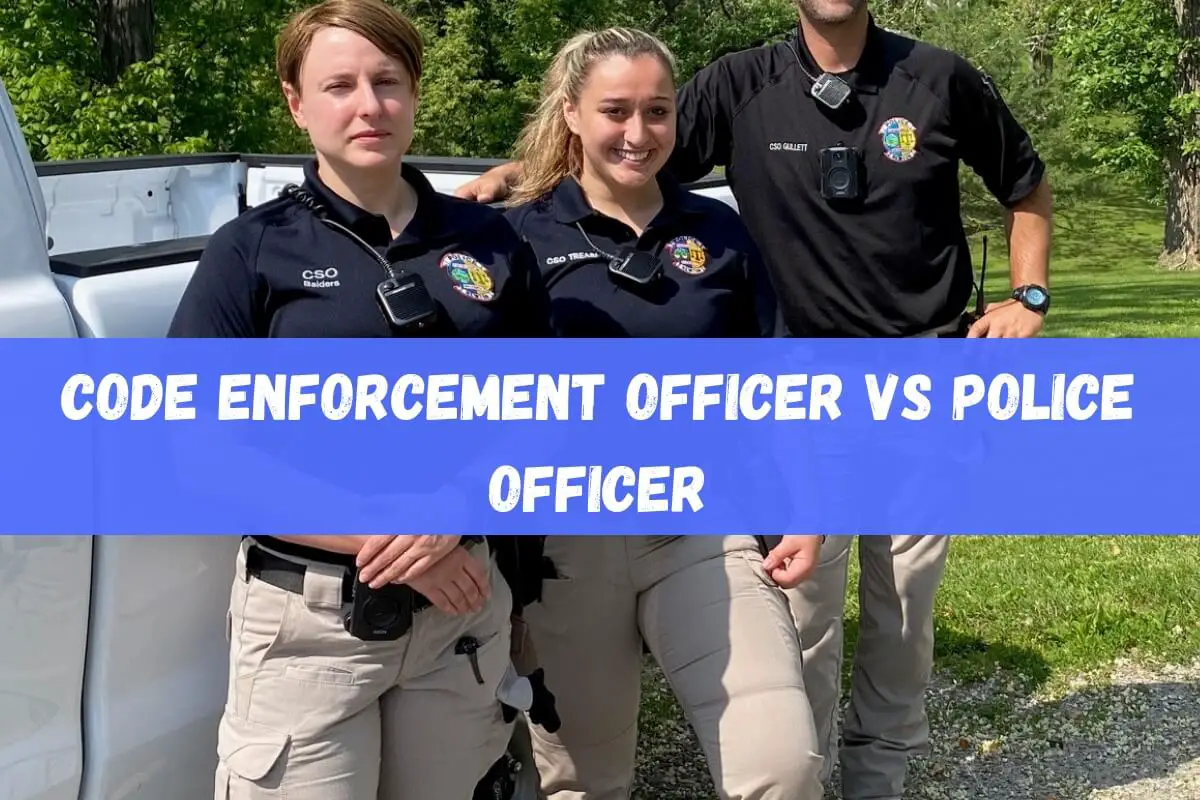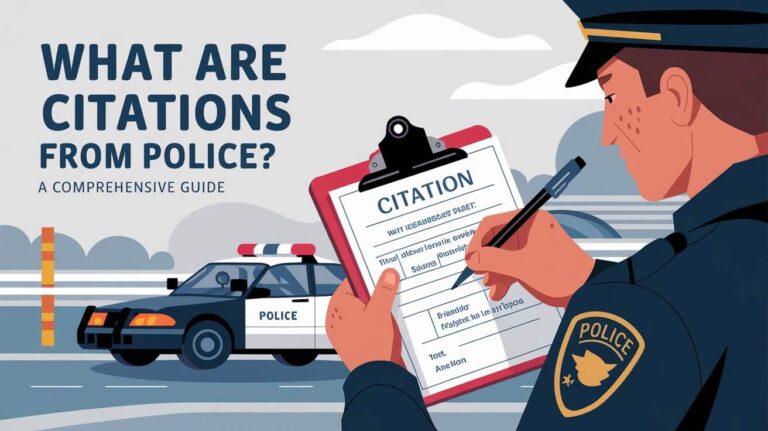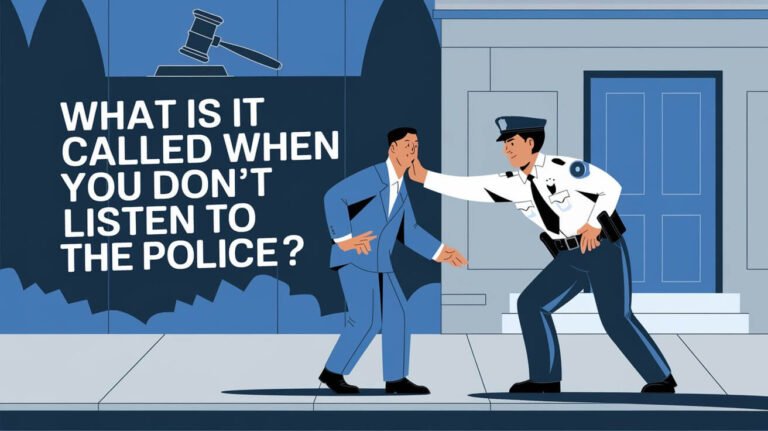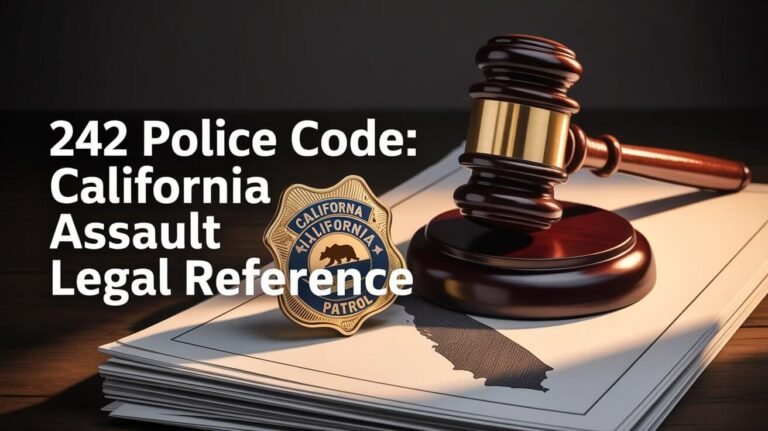Code Enforcement Officer Vs Police Officer

Maintaining order, public safety, and quality of life within communities requires cooperation from both law enforcement agencies and local government regulatory bodies. While police officers are well-understood figures upholding criminal laws, there is another lesser-known but equally important role – the code enforcement officer.
What’s the primary difference between a code enforcement officer and a police officer? In simple terms, code enforcement officers ensure compliance with local civil regulations like building codes and zoning laws, while police officers enforce criminal laws, maintain public order and safety, and have broader arrest powers.
This blog post will take an in-depth look at the roles, responsibilities, authority levels, training requirements, and key differences between these two crucial yet distinct professions. We’ll explore scenarios when you would need a code enforcement officer versus a police officer, delve into their typical career paths and salaries, and clarify if code enforcement officers technically qualify as police officers.
What is a Code Enforcement Officer?
A code enforcement officer is a government official employed by a municipality (city, town, village, etc.) to enforce local laws and regulations related to public health, safety, property maintenance, and community improvement standards. Their primary responsibility is ensuring compliance with a wide array of civil codes and ordinances through inspections, education, and when necessary, punitive actions.
These codes and ordinances can encompass areas such as:
- Building codes (construction, renovation, demolition)
- Zoning laws (allowable property uses in zoned areas)
- Housing codes (minimum habitability standards)
- Environmental regulations (noise, pollution, dumping)
- Nuisance abatement (overgrown lots, abandoned vehicles)
- Business licensing requirements
- Signage and parking regulations
A code enforcement officer is tasked with ensuring properties and buildings adhere to local laws and regulations through inspections, issuing notices/citations for violations, attending hearings, and educating the public on code requirements.
Roles and Responsibilities of Code Enforcement Officers
The key roles and responsibilities in the day-to-day work of a code enforcement officer include:
Conducting Inspections: Routinely inspecting properties (commercial and residential), construction sites, businesses, etc. to identify any code violations or issues with permits, zoning, signage, and more.
Investigating Complaints: Responding to complaints filed by citizens, other agencies, or internal staff regarding potential code violations like illegal construction, zoning infractions, public nuisances, and more.
Issuing Notices/Citations: When violations are identified, code officers issue written warnings, notices of violation, civil citations, stop-work orders, and schedule follow-up inspections.
Appearing at Hearings: Representing the municipality at administrative hearings, appeals boards, and potentially court proceedings related to contested violations.
Public Education: Explaining code requirements to property owners, contractors, residents, and businesses to increase awareness and facilitate voluntary compliance.
Recordkeeping: Diligently documenting inspections, violations, evidence, enforcement actions, and maintaining accurate case files.
Code enforcement officers do not have full police powers. They cannot execute arrests, detain individuals, or carry firearms in most jurisdictions. Their enforcement toolkit is limited to citations, fines, permit revocations, and in some cases, requesting police assistance for confrontational situations.
What is a Police Officer?
A police officer is a certified law enforcement official employed by a law enforcement agency at the local, state, or federal level. Police officers have the legal authority to enforce criminal laws, make arrests, conduct searches/seizures, use force when justified, and take other actions to maintain public order and safety.
The primary roles and responsibilities of police officers generally involve:
- Preventing and investigating crimes
- Responding to emergency calls for service
- Enforcing traffic laws and issuing citations
- Patrolling assigned areas to monitor for suspicious activity
- Apprehending and arresting suspected offenders
- Preparing detailed reports and providing court testimony
- Engaging in community policing and crime prevention initiatives
- Protecting the lives and property of citizens
A police officer is a sworn law enforcement professional with the authority to enforce criminal laws, make arrests, use force when necessary to maintain public order and safety, conduct investigations, and regulate traffic.
Unlike code enforcement, which is limited to civil regulatory enforcement, police officers derive their powers from state laws and police officer certification requirements. They must complete extensive police academy training on topics like defensive tactics, use of force, firearms, emergency vehicle operations, and more.
Police are authorized to carry firearms, defensive weapons, and restraints. They follow a use-of-force continuum which allows them to employ varying levels of force appropriate to the situation – from verbal commands up to lethal force.
Key Differences Between Code Enforcers and Police
While both code enforcement officers and police officers work towards maintaining order and quality of life in communities, there are several fundamental differences in their roles, authority levels, and overall scope of work:
Authority and Enforcement Powers
The primary difference lies in the laws/codes they enforce and the extent of their enforcement powers:
- Code Officers enforce local civil codes, ordinances, and regulations set by the municipal government body. Their enforcement tools are limited to written warnings, citations, fines, permit revocations, etc.
- Police Officers have the authority to enforce all criminal laws at the local, state, and federal levels. Their enforcement powers are far broader – including the authority to conduct searches, seize evidence, make arrests, use physical force/restraints, and issue criminal citations.
Code enforcement actions are civil/administrative with monetary penalties. Police enforcement can lead to criminal charges, fines, incarceration, and other criminal penalties.
Training and Certification
- Code Officers: Typically require a high school diploma, though some municipalities prefer a 2 or 4-year degree in fields like law, criminal justice, or public administration. On-the-job training is provided.
- Police Officers: In addition to a high school diploma/degree, all police officers must complete extensive training at a police academy covering law, investigations, firearms, defensive tactics, emergency operations, and more. State certification is legally mandated.
Types of Laws/Codes Enforced
- Code Enforcement: Deals exclusively with enforcing municipal codes and ordinances related to zoning, property maintenance, building permits, nuisances, business licensing, and other local regulations.
- Police Enforcement: In addition to enforcing local ordinances, police are primarily tasked with enforcing state criminal laws related to public safety, traffic, narcotics, assaults, property crimes, and more.
Authority to Detain/Arrest and Use of Force
- Code Officers: Do not have the authority to detain, arrest, or use any level of force against individuals beyond verbal commands/de-escalation. Can request police assistance when needed.
- Police Officers: As sworn law enforcement, have the legal authority to detain and arrest individuals, and conduct searches/seizures. Follow a use of force continuum allowing the use of defensive tactics, non-lethal and lethal force when objectively reasonable.
Uniform and Equipment
- Code Officers: Typically wear semi-formal business attire or branded uniforms without any weapons/gear apart from communication radios.
- Police Officers: Wear full police uniforms and defensive gear including firearms, tasers, batons, restraints, body armor, and other protective/enforcement equipment.
While their roles differ significantly, code enforcement and police do collaborate frequently. Police officers may be called to assist code enforcement in confrontational situations or execute enforcement actions against non-compliant individuals.
When Would You Need a Code Enforcement Officer vs Police?
So in what types of situations or scenarios would you need the services of a code enforcement officer versus calling the police? Here are some general guidelines:
Code Enforcement Officer Needed:
- Violations of local municipal codes like zoning laws, property maintenance standards, signage and parking regulations
- Issues with construction projects not having proper permits or inspections
- Investigating complaints about building code infractions like unsafe structures
- Enforcing regulations for businesses not following licensing requirements
- Abating public nuisances like overgrown lots, illegal dumping, abandoned vehicles
- Educating property owners/businesses on local codes and compliance requirements
Police Officer Needed:
- Situations involving suspected criminal activity like thefts, assaults, illegal drug/weapons violations
- Responding to emergencies where lives or property are at risk
- Traffic incidents, enforcing traffic laws, and issuing moving violations
- Maintaining public order/safety at events, crowds, or potentially volatile situations
- Detaining and arresting suspected criminal offenders
- Conducting criminal investigations and collecting evidence
Of course, the roles can overlap in certain cases. For example, if a code enforcement officer encounters a confrontational or non-compliant individual, police may be called to assist or take enforcement action. Similarly, if police officers respond to a call and identify potential code violations, they may report it to code enforcement.
Are Code Enforcement Officers Police Officers?
The short answer is no – code enforcement officers are not considered police officers in the traditional sense. While they both work to maintain order and compliance within communities, there are distinct differences in their authorities, training requirements, and overall roles.
Code enforcement officers are civilian government employees tasked with enforcing local civil codes and regulations. They do not derive their enforcement powers from state laws like police officers do. Code officers also lack the authority to make arrests, detain suspects, carry firearms, or use force beyond verbal commands.
Their role is solely limited to ensuring compliance with municipal codes through means like:
- Inspections and documentation of violations
- Issuing written warnings, citations, or violation notices
- Appearing at administrative hearings as the prosecuting party
- Requesting police assistance for confrontational situations
In small towns or rural areas, police officers may handle minor code enforcement duties. But in most municipalities, code enforcement and police roles are separate and have their personnel.
Career Paths and Salaries
The career trajectories, promotional paths and salary ranges for code enforcement officers differ from those of sworn police officers:
Code Enforcement Officer Careers
Entry-level code enforcement officers typically start with a high school diploma, though some employers prefer or require a 2-year or 4-year degree in fields like criminal justice, public administration, construction management, etc.
With experience and training, code officers can advance to senior code officer roles with more responsibilities like:
- Supervising junior code officers
- Assigning & reviewing cases
- Developing policies and procedures
- Handling high-profile or complex cases
- Training and mentoring new hires
Some experienced code enforcement officers may eventually be promoted into management/supervisory positions like Code Enforcement Manager or Director overseeing an entire municipal department.
According to ZipRecruiter, the average annual salary for code enforcement officers is around $57,740–$82,900.
Police Officer Career Path
The career progression for police is more defined, starting with completing police academy training and becoming an entry-level police officer.
With experience and continuing education, officers can get promoted through a ranking structure like:
- Police Officer
- Corporal
- Sergeant
- Lieutenant
- Captain
- District/Precinct Commander
Higher ranks in larger police departments may include:
- Deputy Chief
- Assistant Chief
- Chief of Police
The Indeed Statistics reports that the average annual salary for police officers is around $65,060.
Salaries can vary significantly based on geographic region, population density, cost of living, and agency size.
Code enforcement and policing are two different careers with different powers, duties, and salary ranges.
The Bottom Lines
Code enforcement officers and police officers play complementary yet separate roles in upholding community standards, public safety, and quality of life. While their day-to-day work may sometimes overlap, it’s crucial to understand the key distinctions:
Code enforcers are civil regulatory officials focused on ensuring compliance with local municipal codes and ordinances related to zoning, building safety, nuisances, and more. Their enforcement toolkit is limited to written citations, fines, permit actions, and civil penalties.
Police officers, on the other hand, are sworn law enforcement with the authority to enforce criminal laws at all levels. They have far-reaching powers like arrest, detention, searches/seizures, and use of force to maintain public order and safety.
Knowing which situation warrants a code enforcement response versus a law enforcement response is vital for resolving issues effectively. The two roles often collaborate, with police lending assistance to code officers when confrontations or force is required.
For those seeking a career in public service and regulatory compliance, code enforcement can be a rewarding path. While it lacks traditional law enforcement responsibilities, it plays an essential part in preserving community standards, aesthetics, and livability.
Both professions create safe environments for residents through different codes, laws, and enforcement methods tailored to their roles.






